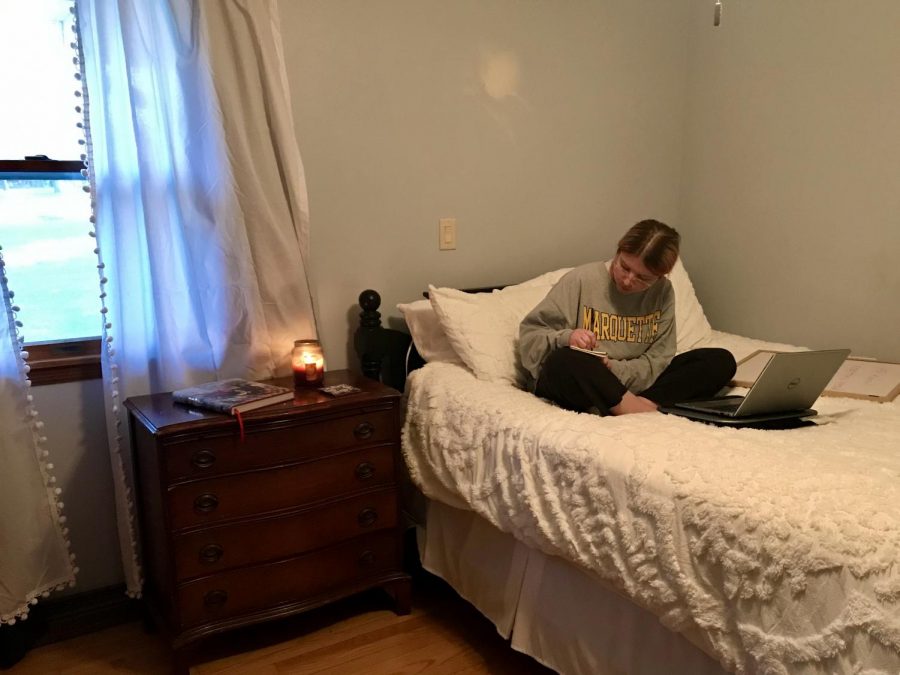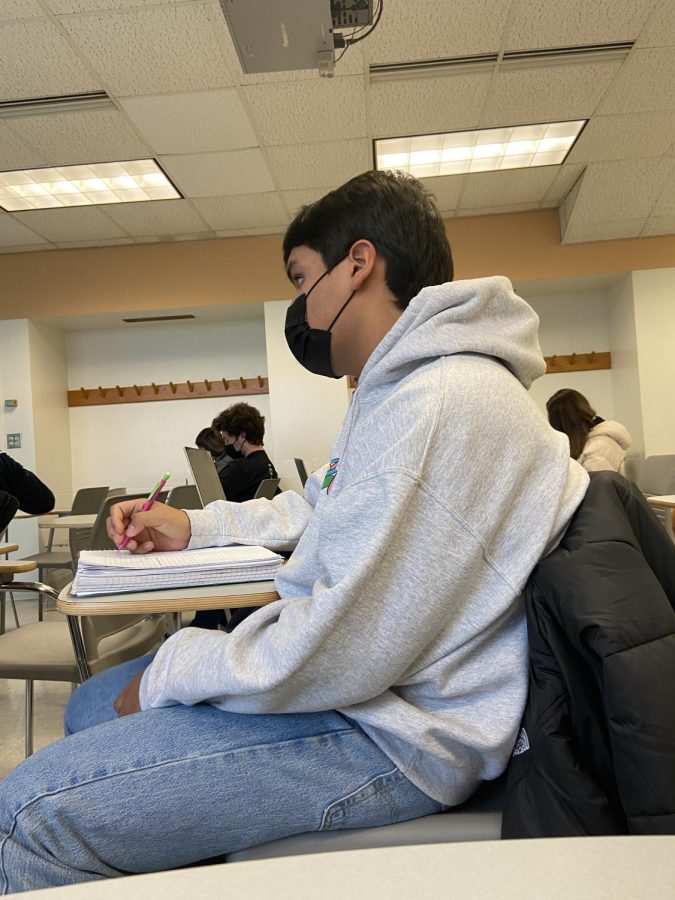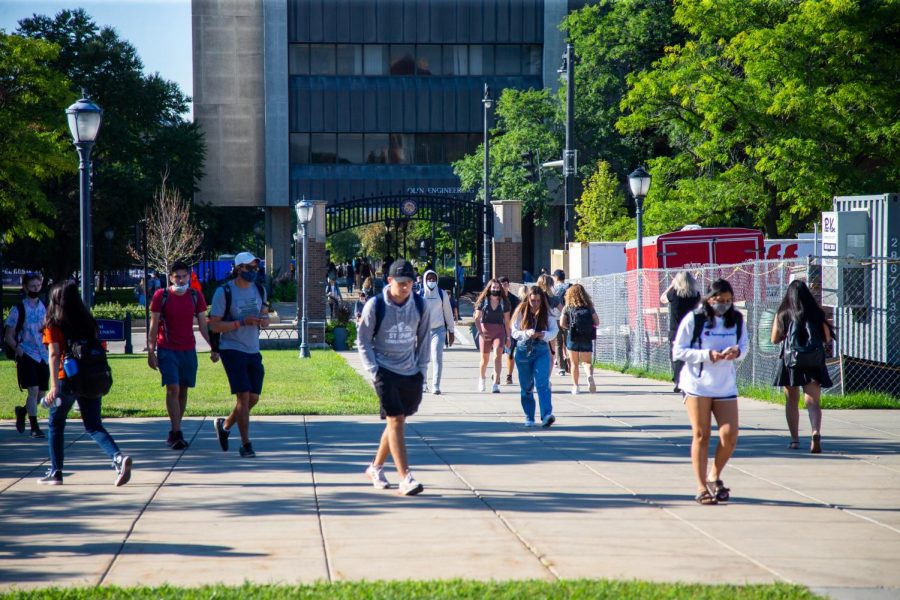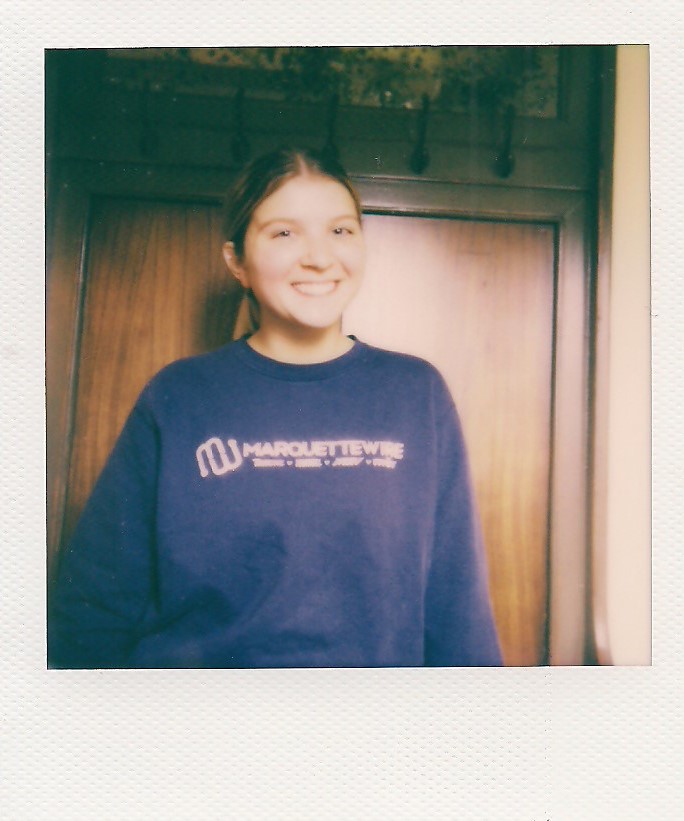It’s misty outside. I sneak a look at Johnston Hall as my mom and I drive by, imagining myself inside the second floor newsroom. We are merging onto the freeway after picking a few things up from my campus apartment as Gregory Alan Isakov sings about silver and gold. I’m crying, before I even know it. My mom knows without even looking at me and grabs my hand. I glance at her, and she’s crying too. We’re mistier than the sky.
I’m back in 2016. My first year at Marquette brings me new friends, new interests, some anxiety, some fear, a lot of sleepless nights and adjustments — but the adjustments and challenges are my soil and water. I meet my best friends, and we become inseparable.
I enter my second year as an advertising student, but I grapple with where my academic interests lie. By the end of sophomore year, I find a home in the anthropology department, which invigorates my desire to learn and think critically. What I learn in my courses begins to shape how I see the world, how I want to see it, how I talk to people and how I think. I want to see new places, meet new people and ask them all the questions.
I fly to Spain in the spring of my junior year. I quickly learn I cannot speak Spanish as well as I think I can. Regardless, I talk to a lot of strangers, feeling constantly out of place — but I find comfort in the discomfort. I drink a lot of coffee and watch the news with my host mom. I wear out my white Reebok shoes roaming the streets with new friends. I never want to go home, but I also want to go home more than anything. I return to Milwaukee with what feels like a new set of eyes.
Senior year begins with nerves and excitement, and I feel as invested as ever in my work on the Marquette Wire. I see the bigger picture of what being a copy editor means: It is not just correcting grammar and checking adherence to AP Style. Sure, I’m changing reporters’ words — but their words are changing me even more. I see myself working in this industry. Come winter, I’m wearing a blazer and nervously scribbling in a notebook on an early morning train on my way to an interview.
January 2020 brings me a job offer. March takes it away. Or rather, the virus takes it away — March had nothing to do with it. The virus didn’t technically take it away either. Perhaps circumstance or timing is who I want to blame.
I read the email over and over, the screen becoming progressively more obscured by my tears. My imagined post-graduation life dissolves instantly. The words “student loans” flash in my mind. At this moment, I’m thinking only of myself. Later, I think of the company, along with every company that will have to send similar emails and those who will receive them. The loss of my job offer is an early symptom of our world’s imminent precarity.
March takes me from my apartment and roommates and classes and professors and beloved campus spaces, and back to my parents’ house. Then, to a new home. I didn’t even know that moving homes during a pandemic was possible. It feels strange to be unpacking boxes and worrying about how I’m going to decorate my room when the TV declares devastating statistics and analyses in the background. Am I allowed to worry about the fact that my new room has only one window when I would have liked two? And here, I remind myself: It’s a privilege to be able to worry about my windows, and I feel loved in whichever home and bedroom I reside.
Now it’s been misty outside for weeks, even when it’s sunny. My heart is crying out for golden yellow paint on my bedroom walls, lit candles, peace, vaccines, cures and tight hugs.
Despite what is going on in the world today, our commitments to each other cannot change. Let’s ask ourselves, every day, what we mean to each other. I know my family, friends, professors, classmates and coworkers mean the world to me, but what about people I pass on the streets whose names I don’t know? Caring comes easily for those we hold close to our hearts, so we must be imaginative about what it may be like to live as our neighbors whom we’ve never met — because they too mean something to us by the very fact of their humanness.
Stay committed to yourself and your humanness, too. As much as I want to feel cheerful every day, I let myself feel profoundly moved and touched and heartbroken and scared because that is what I owe to myself. So I read the tragic stories of loved ones being separated from each other due to quarantine, workers losing jobs and the virus taking lives. And I cry, and I try hard to not get used to it.
I sit on my computer reading classmates’ responses to my discussion posts to the tune of “Hope you’re doing well!” and “Miss you!” and “I loved having you in my group,” and I cry because I wish we could exchange these words in person. I cry reading professors’ emails laden with “I miss you all” and “Please, reach out” and “Please, take care of yourselves.” I cry because my most treasured parts of academic life were the in-between instances of shared laughter among my peers, meeting new friends in office hours and the palpability of learning.
I notice the expansion of our collective lexicon to include words like “asymptomatic,” “nonessential travel” and “drive-thru testing.” I cry confronted with the gravity of the terms “pandemic” and “social distancing” and “ventilators.” I read my Wire reporters’ stories and try to articulate the difference between quarantine and self-isolation, wishing I could shout it across the newsroom instead of through email. I cry thinking about microwaving popcorn while putting together our newspaper every Monday, and I look back too fondly on the times we saw the sun coming up as we left.
I think about the moments when I felt my coursework may break me or when I was sick of sharing freezer space, but then I would eat ice cream with friends and sing in the kitchen. I fear losing awareness of those memories because of their abundance, and I worry their vividness will dull with time. I cry because those sweet slivers of time are saturated with meaning I reflect on only retrospectively, and I wish there was a way to know that a moment is changing you as it is happening. I cry when I think about my college roommates and my high school friends — the fiercest of friendships — because, what if we had lingered together for just a few moments longer?
My heart beats; I cry.
Technology these days is amazing, everyone reminds me, because I can stay in contact with anyone and everyone. But FaceTime, Zoom and iMessage don’t make me forget the transformative power of in-person pedagogy, what hugs feel like and what physical presence means to me. We all ought to never forget.
We also ought to be kind to ourselves. I could look back with regret on my countless “could have, but didn’t” moments: stayed up later with my friends, visited a professor, hugged more tightly, gazed one second longer at the sunset from my apartment window, greeted a stranger. I could ask “what if?” until the question loses meaning. Or, I could realize that my intense reflection about these moments may indicate that I am, and was, appreciative. Maybe not appreciative enough, but I’m convinced that what life really means to us transcends our ability to understand how to appreciate it fully. No matter how many more seconds we linger, it will never be enough.
Even though digital communication does not compare to drinking coffee at a table together, or holding hands, or seeing the color of someone’s eyes in the daylight and not through a screen — that doesn’t make it not worth our energy and drained phone batteries. And even though I believe we won’t ever be able to love the world and our neighbors such that we feel satisfied, we still ought to try.
Make a list of whom you love and miss, and tell them loudly and clearly. Don’t allow your longing to be implicit. Lacking tactility, we must promote an extra radical empathy that will continue to exist outside of pandemics and tragedies. That is what I think we should mean to each other, right now and all the time.
This story was written by Emma Brauer. She can be reached at emma.brauer@marquette.edu or on Twitter @em_dash_emma.











Nancy Jour'84 • Apr 18, 2020 at 8:36 pm
Love this! So glad you wrote this as your words will always be in your memories.